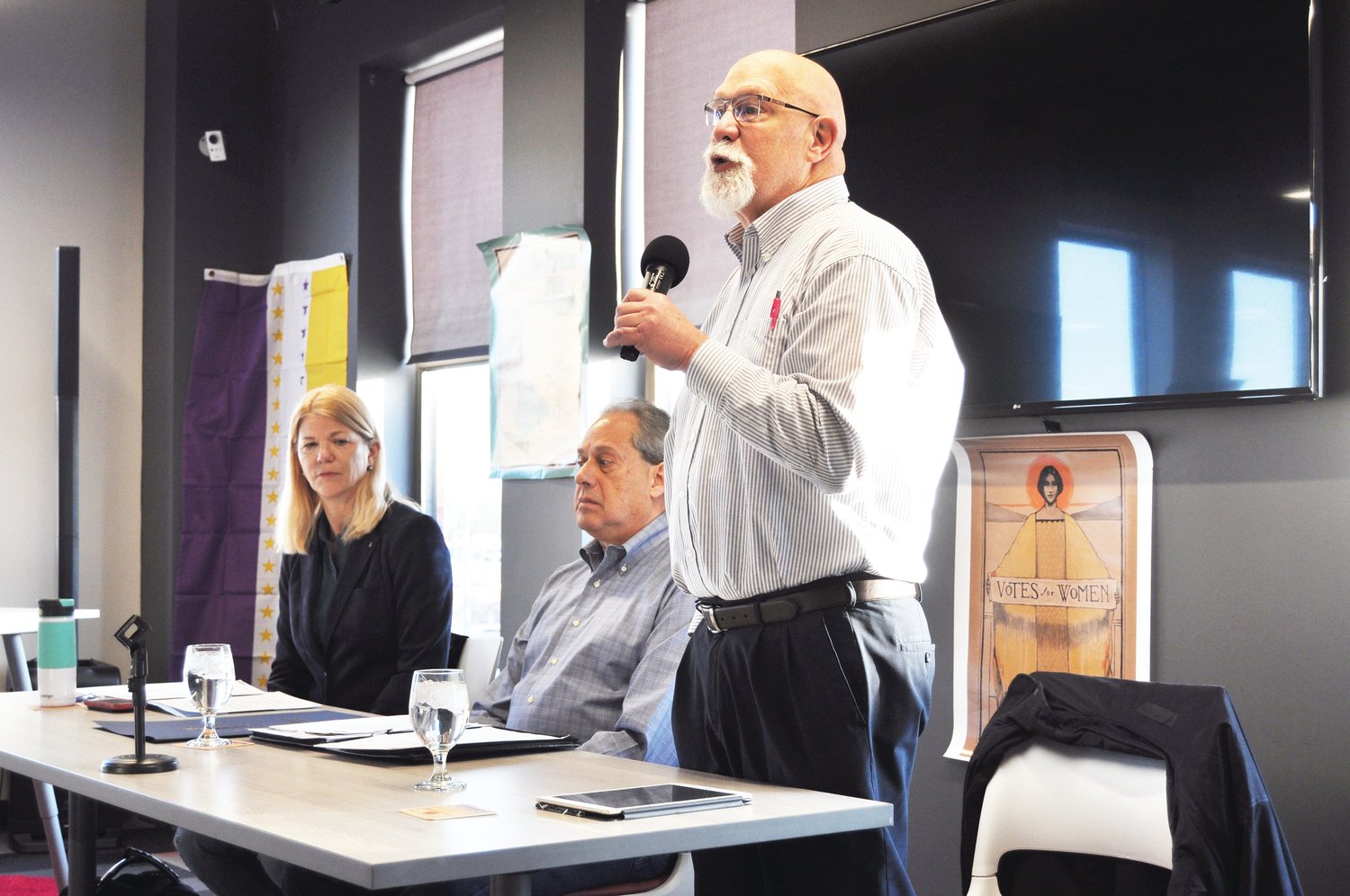
Schools and the environment were on the minds of constituents Saturday as state lawmakers wrap up the legislative session.
State Reps. Tim Brown (R-Crawfordsville) and Sharon Negele (R-Attica) and State Sen. Phil Boots (R-Crawfordsville) fielded questions at Fusion 54 during a legislative breakfast organized by the Crawfordsville/Montgomery County Chamber of Commerce.
About a half-dozen teachers wearing “Red for Ed” shirts were in the audience, joined by retired educators and local elected officials. The event also celebrated the 100th anniversary of the League of Women Voters, and Boots presented longtime volunteer Gail Pebworth with the state’s Circle of Corydon award on behalf of Gov. Eric Holcomb.
Nearly 300 bills remain alive in the General Assembly with about three weeks left in the session. Lawmakers will soon begin ironing out final changes to the remaining legislation. The assembly must adjourn by midnight March 14.
The lawmakers heard input on virtual schools, holding schools and teachers harmless from student testing scores and the shift to renewable energy, which included a heated back-and-forth on the scientific consensus of climate change.
All three lawmakers supported tightening the rules for authorizing virtual schools after a state audit uncovered that two online academies under federal investigation for inflating enrollment numbers had misspent nearly $86 million from taxpayers.
“It’s awful, it’s disgusting. It’s very difficult to legislate against people who are criminals and that’s what they are,” Negele said, “so I hope that the letter of the law is slapped on them hard and obviously going forward we just have to tighten our controls and we’re working on that.”
Officials for the schools blamed the enrollment dispute on the differences between virtual and traditional schools, which they argued don’t have state funding cut for students who withdraw after enrollment reporting dates.
Lawmakers are seeking to amend bills that would set mandatory enrollment guidelines for virtual schools and require students who don’t meet the standards to withdraw.
A Republican-led committee defeated an amendment to a House bill that would have required authorizers to sign a bond to confirm they are a valid operator and guarantee the state would be paid back in case of fraud. None of the local lawmakers belong to the panel.
Boots pledged support for a bill that would take standardized test results out of the formula for teacher evaluations and A-F school letter grades. The House unanimously passed a similar measure in January.
“I plan to vote for it,” Boots said.
The House will take up a bill that would allow a South Bend-area township to part ways with one school district and annex to another in a two-year trial period.
Critics say the measure would pave the way for other schools to follow suit.
“I really hope that House members will look at this seriously. It’s just one more attack on our public school system,” resident David Hadley said in an exchange with Brown.
Brown said that 40,000 Indiana students have moved between public schools, representing the highest rate of transfers.
“It’s not an attack on public schools because this is public school to public school transfer,” Brown said.
The next legislative breakfast is set for 8 a.m. April 4 at Fusion 54.
The Associated Press and TheStatehouseFile.org contributed to this report.